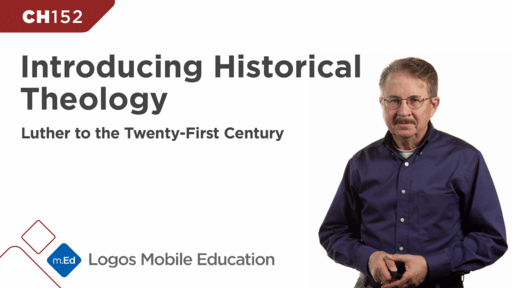CH152 Introducing Historical Theology: Luther to the Twenty-First Century
Sign in to rateIn this course, you’ll begin by studying the Catholic church and its theology on the cusp of the Protestant Reformation, setting the stage for the work of Luther, Calvin, and other Protestant Reformers. You’ll continue on to study the post-Reformation period and various Christian movements such as Pietism, Puritanism, and Methodism. A study of modernity, beginning with the Enlightenment and the scientific revolutions, introduces the advent of liberal theology and the response of conservative theologians to the challenges of modernity. The course ends with a study of the postmodernity—its meaning, and the variety of ways that Christian theologians have responded to postmodern thought.
